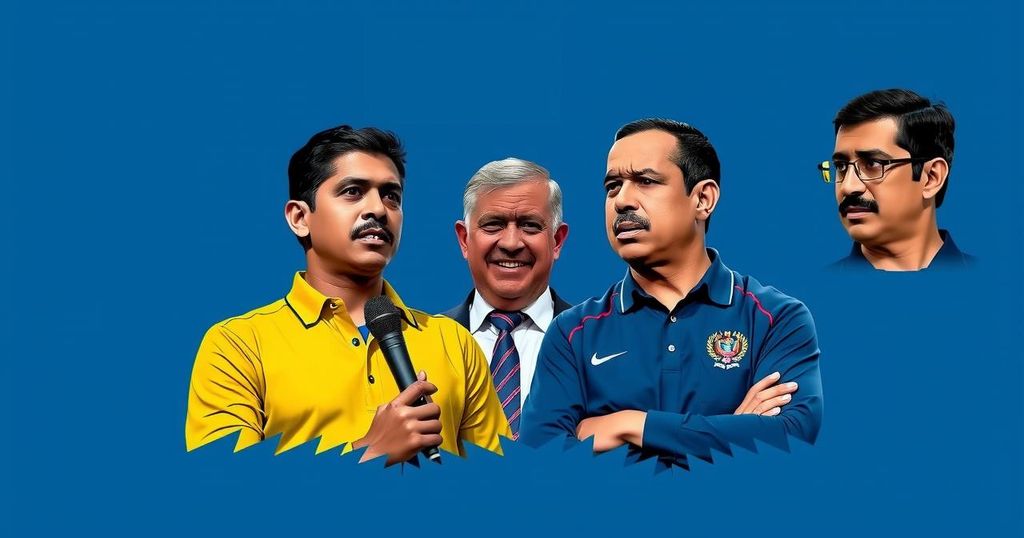U.S. Recognizes Edmundo González as Venezuela’s President-Elect Amid Election Dispute

The U.S. recognized Edmundo González as Venezuela’s president-elect following disputed elections in July where Nicolás Maduro was declared the winner by electoral authorities. Despite claiming victory, González faces challenges regarding his legitimacy, compounded by an arrest warrant leading to his exile. International criticism of the electoral transparency has escalated, as foreign leaders reassess their positions on the election’s validity.
On Tuesday, the United States officially recognized Edmundo González, a Venezuelan opposition candidate, as the “president-elect” following the contested election held in July. This announcement came from U.S. Secretary of State Antony Blinken, who also called for respect for the Venezuelan electorate’s will. Although González purportedly secured the majority of votes in the July 28 election against President Nicolás Maduro, the legitimacy of the election results has been fiercely disputed. The Venezuelan National Electoral Council, largely composed of Maduro supporters, declared Maduro the victor shortly after polls concluded, without offering comprehensive voting data. Despite this, the opposition coalition counterclaimed, asserting that they had collected vote tally sheets from 80% of voting machines, indicating that González received double the support of Maduro. González expressed gratitude for the U.S. recognition, indicating that it honors the Venezuelan populace’s desire for change. Following an arrest warrant pertaining to an ongoing investigation regarding the vote tally sheets, he left for exile in Spain in September. Venezuela’s Foreign Minister, Yván Gil, countered Blinken’s acknowledgment with disparaging remarks, emphasizing the government’s disregard for international scrutiny regarding the election’s fairness. Moreover, international observers, including those from the United Nations, have raised concerns regarding the credibility of the electoral outcomes, calling for greater transparency and detailed record releases, which have yet to be fulfilled. In a notable shift, Colombian President Gustavo Petro recently retracted his earlier support for the election, labeling it a “mistake” amid mounting criticisms regarding its validity. As the political landscape continues to evolve, Maduro awaits a ceremonial inauguration following an invitation from the National Assembly, which holds solid support for his regime.
The political landscape in Venezuela has been marred by tensions stemming from elections that have been widely criticized for their lack of transparency and fairness. Following the controversial presidential elections of July 28, 2023, where Nicolás Maduro seemingly emerged as the winner according to an electoral council aligned with him, serious allegations of electoral fraud and manipulation have surfaced. The U.S. government’s recognition of Edmundo González as the rightful president-elect underlines the ongoing contention surrounding democratic practices in Venezuela. The situation escalates with international observers and foreign governments grappling with the implications of the election results, as leaders from neighboring countries reassess their stances on Maduro’s legitimacy.
The United States has officially recognized Edmundo González as Venezuela’s president-elect amid an ongoing dispute regarding the legitimacy of the July elections. Allegations of electoral manipulation continue to raise concerns both domestically and internationally, prompting calls from various nations for transparency and further investigation. As political tensions rise, notable shifts in support from leaders, such as Colombia’s president, reflect a growing consensus about the flawed electoral process. The forthcoming presidential term beginning on January 10 remains a pivotal moment as the leadership debacle unfolds.
Original Source: apnews.com







